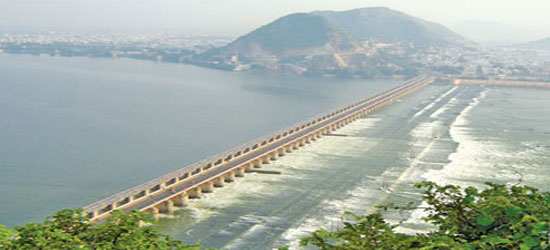
Agiripalli: This belt villages near the fertile delta of the Krishna river, much is what has been for generations: The soil is as black cotton, and mango trees heavy with fruit, fields of snuff and fragrant and deeply green as ever.
But there have been curious changes in recent months. An ancient temple has received an expensive upgrade, with a new banquet hall, courtesy of community donors. Some plots once cultivated by smallholders are unattended, nothing but pasture for cattle weed. Locals say "For Sale" signs have been replaced by signs saying "No Sale" as farmers try to fend off an onslaught of buyers who seem to appear overnight.
As buyers are, theories abound. In the markets and side stalls tea, people recite the names of the politicians who reportedly visited late at night to inspect a property without being detected. They wonder if cricket hero Sachin Tendulkar recently retired actually bought 100 acres in a nearby town, as newspapers say.
At first glance, these mango groves in the middle of nowhere seems an unlikely place for a surge of speculation. But in June, after years of impassioned debate, divided India Andhra Pradesh, a large state in southern India in two, creating 29 state of India, Telangana.
The new state will keep the old city of Hyderabad as its capital, so what is now Andhra Pradesh eventually needs a new capital, and these small towns could end up outside what could be a new expanding city .
In India, the political connections seem to have a knack for buying land at the right time. Deprived of government decisions on zoning or development, which are often accused of acquiring land near a planned development or through influence to get the requalified earth, ending with a stroke of luck.
In Andhra Pradesh, the location of the new capital has become an opportunity, especially in and around the nearly 25-mile stretch between two cities: the commercial city of Vijayawada and snuff fields near Guntur, each strengths caste with political connections.
Agiripalli and surrounding villages which have the advantage of being on the outskirts of Vijayawada, where plots are dominated by the caste to which the Chief Minister Chandrababu Naidu belongs business. Naidu - who has gained worldwide fame through the pro-market policies, which are credited with the building of the metropolis of Hyderabad in information technology today - has certainly told local media that the capital will be somewhere along the stretch of Vijayawada and Guntur.
The opposition to this plan emerged last week when an advisory committee recommended several alternative locations for the central government, according to local reports.
Ram Babu Nardala, 31, a handle and rice farmer, has positioned himself as the real estate broker people in recent months, an intermediary between farmers and buyers gloomy city.
Nardala not known whether this extension fields will become the new capital, but knows that business is good. He spends his mornings manage its harvest, then driving her new SUV, with the flag of the party chief minister in the hood, in a small hut with columns located between ficus trees that line the main road. This unassuming space is where many real estate deals are negotiated in the village.
"I have a circle of people in Vijayawada," he said, regularly reaching into his jeans pocket to calm your cell phone ringing, "and I keep getting offers."
Recently oversaw the sale of one hectare of farmland belonging to his brother-in-law and said the deal brought in nearly $ 180,000 a buyer Vijayawada describe only as a businessman.
"If agriculture on it, '" he said, "you do not even earn 50,000 rupees," or about $ 800.






















